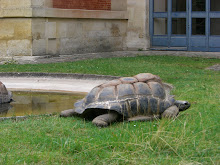2 years ago, when I started my economics course, I researched on the problems of small states. Here, the definition of small state is a country with a population of less than 1 million. And, guess what, apparently small states have BIG problems. These are some of the findings (see for example papers by Armstrong and Read, 2003; Commonwealth/World Bank paper, 2002):
- Small domestic market: Nothing new here. This has implications for the development of large-scale industries, no critical mass to absorb costs of productions etc. etc. As a result, there will exist some oligipolistic/monopolistic organisations. [True, right?]
- Limited Diversification: Small state has limited natural resources. Even if we have rich resources, small states may not have the financial ability to exploit those resources and therefore need capital inflow i.e. foreign investment [I am not sure if this argument still applies and also if it also applies to Brunei! Will talk about this later.]
- Economic Vulnerability: Because of the lack of diversified domestic products, we tend to resort and be highly dependent on imports. This means we are quite vulnerable to external shocks. [Just imagine if anything happens to Thailand, I guess we all have to resort to eating 'ambulung' and 'ubi kayu'..but Hey! have we got that??]
- Limited Labour Capacity: There are 2 implications. Firstly, research shows that Brunei is dependent on foreign workers particularly in both ends of the skill spectrum i.e. manual workers on one end and professionals on the other hand (see Tan and Hashim, 1999) i.e. to put it bluntly there are so many 'qualified' keranis (clerks) but lack of brick-layers and chartered accountants/architects/engineers etc. Secondly, it poses the problems of selecting experienced and efficient administrators i.e. high quality leaders are SCARCE. (Hmm, no comment!)
- Poor administrative characteristics: Small staff, multiply portfolio (hey! there's so much 1 person can do.. However, this only applies to few good people :)), lack of training which result in low levels of innovation, lack of alternative opportunities outside the public sector and so on.
Now, you might be wondering why I'm enumerating all these problems. Some of you might think, OK if these are the natures of small states then, so be it..accept the fate!
The reason why I've digged my almost-long- forgotten file just to extract this piece of information is actually to change the perceptions of some people (like me a few years ago) who think that managing a small state can't be THAT difficult!. AND, now that we know our weaknesses, we all SHOULD work on improving them. Let's do something different from the others. Let's prove the reasearchers wrong. What??! How??!! You ask. I say....we all should start from EDUCATION and the change of MIND-SET.
To me, education is super very important. Will talk about this in another post.
The change of Mind-Set (this is not quite the same mind-set I referred to in my previous post) on the other hand, is easier said then done! To begin with, we must remove the N.A.T.O (No Action Talk Only) trait that seems to exist in a number of many Bruneians (including me, sometimes!) ASAP and let's instill in ourselves that 'Nothing is impossible, except matters related to God'. If Brunei was once-upon-a-time a Malaysia-cup champion, why isn't it now?? If Brunei was a-very-long-once-upon-a-time an Empire, why aren't we now?(well...maybe not becoming a large empire, but an equally kick-ass country..y'know what I mean!). Being SMALL does not mean that we can't think BIG!
We should be thankful that Brunei is endowed with oil and gas (mind you, there is a problem of a 'Resource-Curse thesis' which is related to oil-producing country and no, I don't think Brunei suffers from Dutch Disease! I think I'll blog on this some time later), we could afford to shrug our shoulders and sing 'Que Sera Sera'. But oil and gas are depletable and non-renewable, which are predicted to run out within 20-40 years from now. Hey! that's NOT a very long time. Plus we have the urgent need to have some viable economic substitutes in place before that happens. It is now high time for us to pinch ourselves and think real hard. To me, this is not something that can be taken lightly and it shouldn't be the problem to think of for just economists and a small number of people. It involves the whole nation and as we are a SMALL nation, EVERYONE should contribute.
Well, enough of my rambling for today.
Salaam!
ps. if anyone is interested in any of the research papers, let me know and I'll give you the full reference.







No comments:
Post a Comment